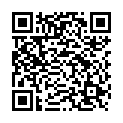|
|
|
| Module code: BIBA795 |
|
|
2V (2 hours per week) |
|
2 |
| Semester: 7 |
| Mandatory course: no |
Language of instruction:
Spanish |
Assessment:
Written examination (final exam)
[updated 05.02.2020]
|
BIBA795 (P200-0022) Civil and structural engineering, Bachelor, ASPO 01.10.2011
, semester 7, optional course, general subject
BIBA795 (P200-0022) Civil and structural engineering, Bachelor, ASPO 01.10.2017
, semester 7, optional course, general subject
|
30 class hours (= 22.5 clock hours) over a 15-week period.
The total student study time is 60 hours (equivalent to 2 ECTS credits).
There are therefore 37.5 hours available for class preparation and follow-up work and exam preparation.
|
Recommended prerequisites (modules):
None.
|
Recommended as prerequisite for:
|
Module coordinator:
Dr. Julia Frisch |
Lecturer: Dr. Julia Frisch
[updated 01.11.2016]
|
Learning outcomes:
The course "Spanish for Beginners 1" is aimed towards learners with little or no previous knowledge of the Spanish language. The courses "Spanish for Beginners 1 and 2" are based on each other. In the course of the two modules, students will first reach proficiency level A1 and then advance to level A2 of the European Framework of Reference for Languages.
The goal of the course is to provide students with basic knowledge of the Spanish language, which will enable them to communicate in general and professional situations as quickly as possible, both orally and in writing. To do so, all four skills (speaking, listening comprehension, reading and writing) will be trained equally. Content development will be supported by the repetition of the relevant grammatical structures.
The course takes a communicative and pragmatic approach that particularly promotes communicative competence in job-relevant situations through the use of role playing and situational dialogues. This also includes intercultural aspects that raise the students´ awareness of cultural differences and enable them to assert themselves in specific situations.
[updated 05.02.2020]
|
Module content:
In the course "Spanish for Beginners 1" students will learn the lessons 1 to 9 from"Español Profesional 1".
Establishing contact:
- Formal greetings
- Introductions
- Asking how someone is feeling
- Giving information about yourself and requesting information about others
- Saying thank you, apologizing and saying goodbye
- Describing a person
- Getting to know business partners
Job profiles and the workplace:
- Describing jobs and activities
- Showing and describing products
- Describing departments and responsibilities
- Planning activities
Oral and written communication:
- Common verbal expressions (asking for names, telephone numbers and e-mail addresses)
- Making appointments with colleagues
- Requesting and giving information
- Writing e-mails
- Time
- Daily schedule, making appointments
In addition, basic grammar structures will be learned (e. g. indicative presence of regular and irregular verbs, form of progression, prepositions, personal and possessive pronouns, asking questions, syntax).
Students should work on and expand their basic vocabulary independently.
[updated 05.02.2020]
|
Teaching methods/Media:
Teaching and learning materials (print media, slides, audio-visual teaching materials), multimedia learning software compiled specifically for the learning group.
[updated 05.02.2020]
|
Recommended or required reading:
The course is based on the following textbook and will be supplemented by additional learning material:
Español Profesional 1 _ Spanisch für den Beruf, Lehrbuch ISBN: 3-464-20088-4, Arbeitsbuch ISBN-10: 3464200809
We also recommend these books for grammar:
Uso de la Gramática Española. Nivel Elemental. ISBN 3-12-5358116-6
Spanische Grammatik für Selbstlerner 01 Bd.1 ISBN-10: 3896577093
Tiempo para conjugar. Buch mit CD-Rom, PC, Mac. ISBN 3-12-535809-4
Students will receive a list of recommended teaching and learning materials.
[updated 05.02.2020]
|


